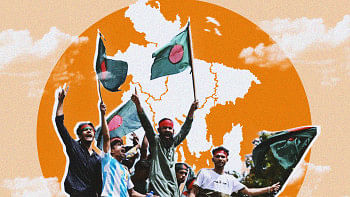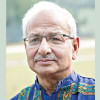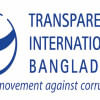Building a lasting defence against fascism

People often understand democracy and its virtues, but when it comes to the practical side of fighting fascism, there's still much confusion. We might have challenged governments and confronted authoritarianism, but does this mean the problem has been solved? Or are these efforts just temporary fixes, like putting a band-aid on a wound that needs surgery? We may have seen the fall of one fascist regime, but have we truly eradicated fascism itself?
Think of fascism like cancer. Imagine you have a cancerous tumour—it's painful, causing the most immediate problems, and you might decide to have a bloody surgery to remove it. Removing the tumour is essential, but does it cure the cancer? Not necessarily. If the cancerous cells remain, there's always a risk that it could come back. It might not be the same tumour or in the same place—it could reappear in your brain, your lungs, or somewhere else in your body.
Fascism is similar to a sickness in society. Fascist "germs" can still be found today, deeply ingrained in societal norms and myths. These stories continue to be told in many social circles, frequently with the backing of those who gain from them. Similar to cancer, fascism can be subtle. It silently spreads across society's shadowy nooks and crannies, feasting on greed and misinformation, fear, and power struggles.
What steps can we take to truly eradicate fascism? We need to focus on three key points. While these are not exhaustive, they can still serve as a foundation upon which to build.
The first step is achieving independence from any external interference in our political structure. Foreign policy and international relations will always have economic and diplomatic influences, that's a given. But the core of our political system—the building blocks of our democracy—must be free from external control. Influence is acceptable in measured stances, but control is not. When external forces interfere, they often validate or create narratives that serve their interests, not ours.
This outside influence may pose a threat. Because it depends more on outside assistance than on the mandate of its own constituents, it might strengthen a political party or government that is exempt from public scrutiny. Because these regimes are more accountable to foreign forces than to their constituents, such situations frequently result in authoritarianism eventually turning to fascism. An example of this is our previous regime's democratic beginning in 2009, which became more authoritarian as the government's external support increased.
We might think of the nations that supported the Soviet Union vigorously during the Cold War. An authoritarian regime ultimately emerged in many of these countries as a result of foreign influence creating a dependency, whereby the local government lost interest in answering to the people.
Our cultural mindset is the subject of the second point. Many conquered nations throughout history have fostered a culture of deference to authority. Long after we gained our independence, this submissiveness persisted and permeated our national consciousness. Because individuals are more likely to accept authority than to question it, it impedes democratic progress.
Instead of focusing on any one political party, we need to invest time and resources to find out the remaining germs of fascism. As the mechanism for fascism still persists, it won't take long for a different party or entity to replace the old one.
In many post-colonial societies, there is a tendency to respect and obey authority figures unquestioningly. This mindset is a hangover from the colonial era when people were taught to see themselves as subjects rather than citizens. Even today, in Bangladesh, when a senior official or politician enters a room, people stand up out of respect—a practice rooted in colonial traditions. In Bangladesh, every leader is looked at through a lens of kingship. Whether they come to power through an election or in some other manner, it seems like an ascension. We all seem to forget that they are there to serve the people and the nation, not the other way around.
This is why we have corrupt institutions filled with corrupt individuals. It's due to the lack of accountability and the superior feeling that people in power gain, which allows them to normalise selfish and corrupt behaviour. When these sorts of individuals fill an institution or organisation, the whole entity becomes like a kingdom. You cannot question it. We are merely subjects of it. It doesn't belong to us but rather to the individuals who run it.
In contrast, in many democratic societies, there isn't the same level of deference to authority. People see themselves as equal participants in governance, not subjects. They speak to their leaders by name and aren't afraid to express their concerns, and an attitude of accountability prevails. Authoritarianism and fascism can flourish when people fail to see that they are the real owners of their nation and that the government should work for them, not the other way around.
The third argument, related to the first two, concerns Bangladesh's idea of nationalism. Our political discourse has been influenced by outmoded colonial-era ideas or outside forces for far too long. We need a narrative developed by our own people, for our own people—one that is rooted in our unique cultural, social, and political context.
Our current idea of nationalism needs a lot more work to reach the state where it can truly serve our people. For the moment, the nationalistic ideas or practices that we have all seem self-serving to a large extent. We are only observing national holidays that the ruling government of the time aligns with, declaring them unimportant when the government changes. This tradition has gone on too long. We are only appreciating our sports teams when they manage a win. We don't pay heed when the women's football team hasn't received their salary in months. We only try to get Geographical Indicators for products that draw interest from nations other than ours. We impose our own conservative or liberal views with nationalism to get an edge on our arguments.
We can look at alternative examples like Japan. It simultaneously embraces its cultural heritage and history while regularly setting the stage for one of the most technologically advanced countries in the world. The preservation of their traditional practices, such as tea ceremonies and martial arts, doesn't hold them back from also having the reputation of precision manufacturing in the global arena.
On the other hand, the US has "The American Dream." The idea is that regardless of background, anyone can be successful through hard work. This narrative of independent identity, freedom, and economic prospects shapes the national idea of the US.
Bangladesh today, more than ever, needs a unified idea of Bangladeshi nationalism. For us, our national identity could potentially accommodate the love for language, as even today we remain the only nation to have shed blood fighting for it. Next could be our fight for democracy. In the 1971 Liberation War, the 90's anti-Ershad movement, and the 2024 July uprising, every time the countrymen came to the streets to fight the suppression of democracy in one way or another. Lastly, our moderate Muslim majority identity, similar to Indonesia and Malaysia, can also play a role.
What does all of this signify for our efforts to combat fascism? It implies that winning elections and overthrowing dictators are not the only goals of the struggle. It involves constructing robust institutions, altering people's perspectives, and promoting an accountable and democratic culture. It's important to understand that, if we're not careful, fascism can emerge from the inside as well as from the outside.
Instead of focusing on any one political party, we need to invest time and resources to find out the remaining germs of fascism. As the mechanism for fascism still persists, it won't take long for a different party or entity to replace the old one.
So, while we have made some progress, we need to remain vigilant, build stronger democratic institutions, foster a culture of accountability, and, most importantly, empower ourselves as citizens to take ownership of our country. Before that, we also have to figure out what we, as individuals, want to do for our country to create our own inception of Bangladeshi nationalism. Only then can we ensure that our victories against fascism are not just temporary, but permanent.
Ashfaq Zaman is the founder of Dhaka Forum and a strategic international affairs expert.
Views expressed in this article are the author's own.
Follow The Daily Star Opinion on Facebook for the latest opinions, commentaries and analyses by experts and professionals. To contribute your article or letter to The Daily Star Opinion, see our guidelines for submission.

 For all latest news, follow The Daily Star's Google News channel.
For all latest news, follow The Daily Star's Google News channel. 










Comments